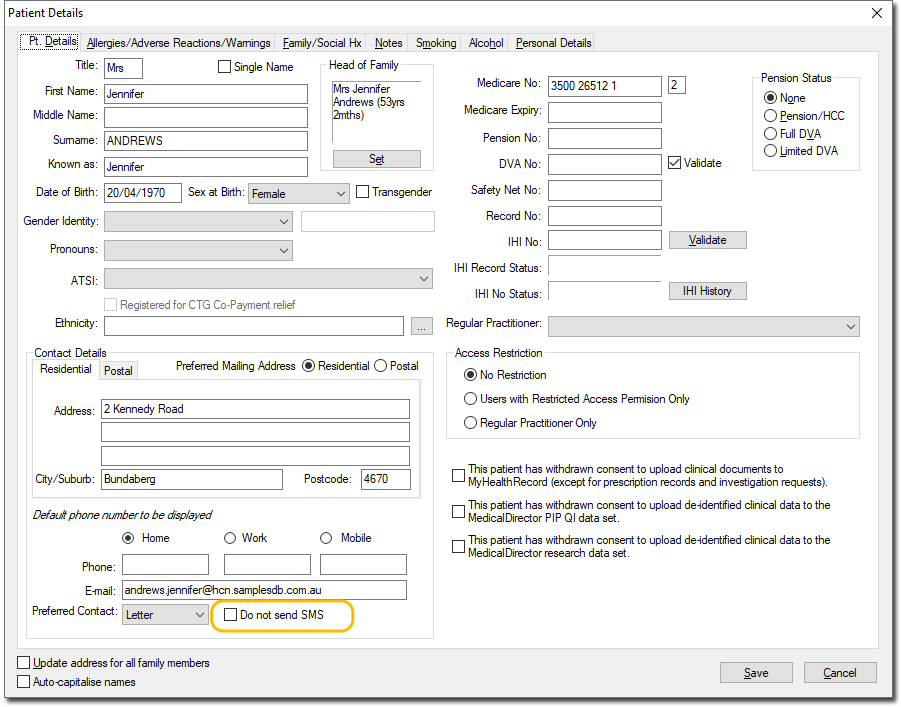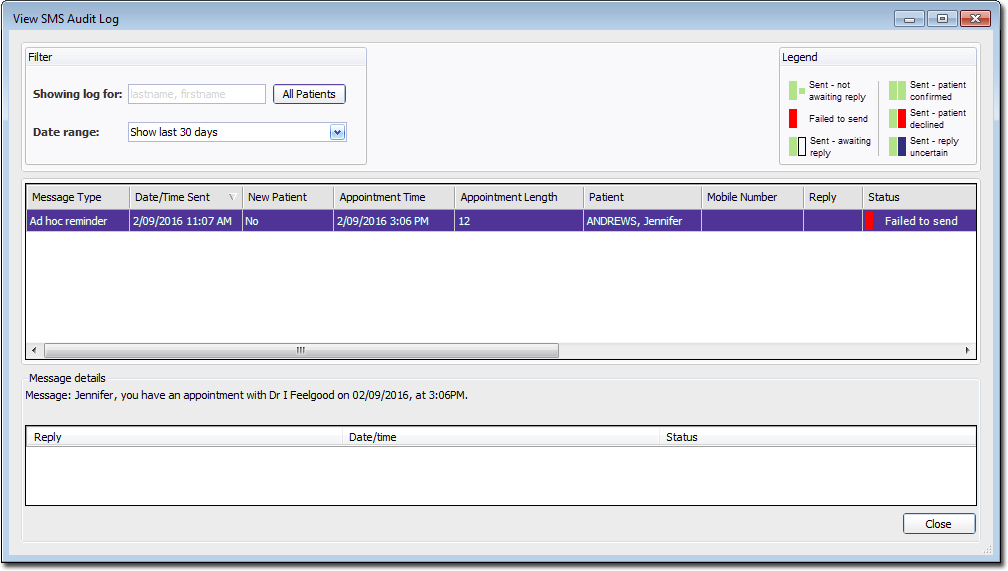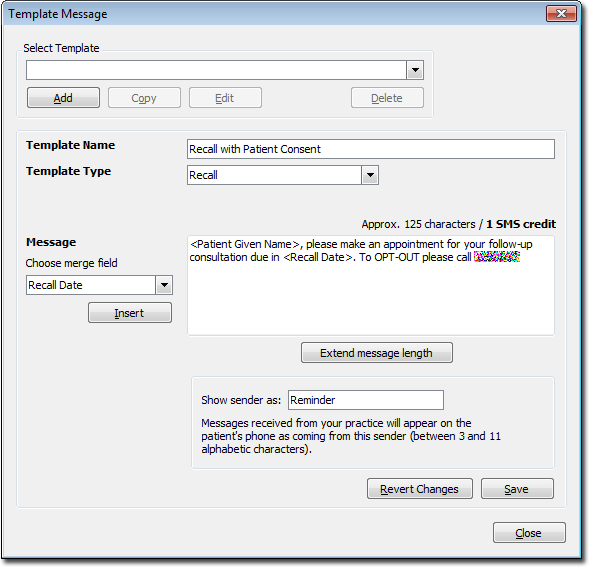Introduction
AVANT, Australia’s leading medical defence organisation (MDO) has provided very helpful tips for sending SMS messages;
Dos and don’ts of patient SMS communication
Recommendations when using SMS messaging
In Pracsoft and Clinical, doctors and practice staff can protect patient personal information when using text communication by taking a few simple steps.
Step 1: Obtain and Document Patient Consent.
Step 2: Limit Information Contained in Text Messages.
Step 3: Implement a System for Following-up Patients who do not Respond to Recall SMS Messages.
Step 4: Document Text Messages in the Patient’s Medical Record.
Please note that these are the recommendations that can be managed within the system, there are other steps mentioned in AVANT recommendations that may require manual steps outside the system.
Step 1: Obtain and Document Patient Consent
For Practices with Pracsoft and Clinical 3.16 or later:
Appointment Reply Text Message
On sending an appointment confirmation SMS, the user can configure reply options which allow the patient to reply with the following offerings:
Within
the Appointment Book, select
SMS > Message Templates >
Configure SMS Reply Behaviour. The Configure
SMS Reply Behaviour window appears.

Opt out: Patients also
have the ability to inform you that they no longer wish to receive
SMS messages from your practice. Typically, they reply "Stop".
This section allows you to specify additional acceptable responses,
such as "S" or "Unsubscribe". When Pracsoft
receives such a reply, it will automatically flag the patient's
record to indicate that they no longer wish to receive SMS messages.
Within
the Appointment Book, select SMS
> Message Templates > Configure Templates. The Configure SMS Message Templates
window appears.

This allows the patient to not only confirm the appointment but
also express consent if they wish not to receive SMS notifications.
When Pracsoft receives such a reply, it will automatically flag
the patient's record to indicate that they no longer wish to receive
SMS messages.

If your practice also uses Clinical it will also automatically
flag in patient’s record.

To Confirm that Patients who Opt-out are Not Receiving Text Messages
When a user tries to send an SMS for a patient who has opted out of SMS notification, the following message is displayed.


For Practices with Clinical 3.16 or Later Only
Recalls / Reminders Text Message
To obtain patient consent via SMS from Clinical, users can set up a custom template. To create a custom template, Select Correspondence > SMS > Templates > Add.

Add appropriate details and the save this template. Use this new template when sending an SMS to those patients who need to consent to receiving SMS notifications from the practice.
You can use the default templates provided in the system if you think this is appropriate message to your patient.
When patient elects to opt-out, ticked the ‘Do not send SMS’ flag in patient details.

To confirm that Patients who Opt-out are Not Receiving Text Messages
Once the patient’s preference is saved in Clinical, when trying to send an SMS for this patient the user will get a prompt to indicate that patient does not wish to receive SMS communication. This also applies to bulk SMS.

The status message in SMS logs window also indicates if the message has not been sent due to patient opting out.

Step 2: Limit Information Contained in Text Messages
MedicalDirector provides the user the flexibility to control the content of each SMS message.
For Practices with Pracsoft 3.16 or Later
When sending SMS messages via the Appointment Book, the user has the following options:
Practice-wide: Accessible to all Appointment Books, and all practitioners.
Appointment-Book-Specific: Limited to a specific Appointment Book, accessible to a specific practitioner.
Templates can be setup from the Appointment Book, select SMS > Message Templates > Configure Templates. The Configure SMS Message Templates window appears.

For Practices with Clinical 3.16 or Later
There two types of SMS templates available in Clinical i.e. Default templates and User-defined templates, providing users the ability to send standard as well as custom messages.
Select Correspondence > SMS > Templates. The Template Message window appears.
For
a default template, select a template from the drop down list.

You can use the default templates provided in the system if you
think this is appropriate message to your patient.
For
a custom template, select Add to start a new blank template. Add
information regarding Template name, Template Type, Message, Sender
and save the new template.
Alternately, users can also copy a supplied default template; edit
this template as desired and save it as a new template.

Step 3: Implement a System for Following-up Patients who do not Respond to Recall SMS Messages
The Search > Recalls function in Clinical can assist practices with identifying patients who have been recalled, but did not attend the recall appointment.


Step 4: Document Text Messages in the Patient’s Medical Record
Any text messages sent from MedicalDirector for an individual patient are logged in that patient’s record.
For Practices with Pracsoft 3.16 or Later
The logs can be accessed by
Right-clicking an appointment and selecting View Appointment SMS Log from the menu that appears.
Selecting an appointment, and selecting Appointment > View Appointment SMS Log.

For Practices with Clinical 3.16 or Later
The logs can be accessed by selecting correspondence > SMS > Logs
